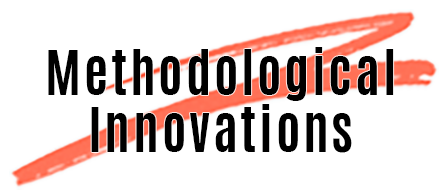Stream B’s presentations were split into a morning and an afternoon session. Below are some reflections.
Stream B: Morning Session
Papers in this session:
‘On Being an Insider: The impact of auto/biographical research on the researcher’ by Juliet Hall.
‘Stories of and from solitude: examples of sociological fiction as a way of working within, besides and beyond the academy’ by Gayle Letherby.
‘A Creative response to Food Issues during the COVID 19 lockdown: Singing out the Anger’ by Clare Pettinger.
Some reflections from Harriet Marks, conference co-organiser and participant:

For me, Juliet Hall’s talk was particularly memorable because I have long been interested in learning about neurodiversity. In sixth form, I wrote an A* dissertation for my Extended Project Qualification (EPQ), in which I explained how passionate I felt about exploring the impacts of having dyslexia on a person’s opportunities in and beyond school. As a mother to an autistic son herself, Juliet’s research explores the lived experiences of mothers with autistic children. During one interview, it became clear that the approaches that the respondent uses to try to manage their child’s behaviour differed greatly from Juliet’s own views and strategies. I thought about how challenging it must have been for Juliet to remain neutral, as she said that she initially felt sorry for the child. This reminded me of Suparna Bahchi’s talk from Stream A, who discussed how being a researcher, rather than a teacher, meant that she could not intervene when she witnessed a teacher mock their student. I felt it was powerful when Juliet referred to Gayle Letherby’s book (Letherby, 2003) as she explained that it was not her role to position her behaviours as the norm by which to appraise her respondents’ behaviours.
In their presentations, Gayle Letherby and Clare Pettinger made reference to their other creative work that we could read or listen to after the conference. I think this was a fantastic strength of these sessions because it provided me with additional resources to expand my understanding of methodological innovations. Before the conference, I never would have associated fiction with research methods but Gayle explored the usefulness of writing fiction for sociological research. She read two of her fiction pieces from the ‘ABCtales.com’ website, where, as she explained, anyone can publish anything they have written. It was great that the conference directed delegates to this website, not only to read Gayle’s other work but also to read or write their own pieces themselves, allowing for further engagement with creative methods. One of Gayle’s stories was a poem which conveyed all of the fictional happenings inside each house along a street during the pandemic such as home-schooling and Zoom calls (see this and other work at: https://www.abctales.com/user/gletherby). I particularly enjoyed reading this again online after watching the session as I felt it amplified a message of community and connection to experience it again.
To explore food issues and food insecurity during the pandemic, Clare sang and spoke, like Kitrina Douglas and David Carless (the keynote speakers) did on the day. When watching the recording of Clare’s session, I enjoyed her song; ‘I Prove My Sourdough’, which illustrated the polarisation of experiences during lockdown, with one line stating, ‘your kids are all starving — fueled by fear, while I bake my bread and ferment kefir’. I found it engaging to hear how passionate she was when she said singing is her way of speaking out as a food justice activist. When Clare put the link to her YouTube channel, ‘The Singing Dietician’, in the Zoom chat, it enabled delegates to continue thinking about food issues after the conference. I particularly enjoyed watching her song ‘SuperMummyLockdownQueen’ (The Singing Dietitian, 2021) on YouTube, as it was sung to the tune of ‘Supercalifragilisticexpialidocious’ from Mary Poppins, a musical that I love. Clare stated that creative approaches can make research accessible to wider audiences, which I think is true because my mum would relate to her song about balancing home-schooling, working and cooking during lockdown but would not read an academic paper.
“Before the conference, I never would have associated fiction with research methods”

“I found it engaging to hear how passionate she was when she said singing is her way of speaking out as a food justice activist”
Click to watch Clare singing ‘I Prove My Sourdough‘ and ‘SuperMummyLockdownQueen‘, both of which are on our ‘Video Content’ page
Click to hear Gayle reading her poem on Slide 6 of her presentation (which is 8:16 on the video) on the ‘Presentation Content’ page
References:
Letherby, G. (2003). Feminist Research in Theory and Practice [online] Buckingham: Open University Press. Available at: https://ebookcentral.proquest.com/lib/plymouth/reader.action?docID=290370 [Accessed 18/03/21].
The Singing Dietitian. (2021). SuperMummyLockdownQueen [online] YouTube. Available at: https://www.youtube.com/watch?v=gNfJkiRhEGs [Accessed 15/06/21].
Stream B: Afternoon Session
Papers in this session:
‘“How’s your week been?” Reflections on the use of texts, emails and phone-calls as methods of data collection during the COVID-19 lockdown’ by Julie Parsons.
‘Remaking Biographical Futures: Reflections on Risk, Technology and Ethics in an era of Social Distancing’ by Lyudmila Nurse, Lisa Moran and Maggie O’Neill.
Some reflections from Harriet Marks, conference co-organiser and participant:

Julie Parsons volunteers for a charity called Landworks who strive to build the self-worth, practical skills and life skills of those in prison or at risk of going to prison. Hearing her talk about Landworks was inspiring, as it showed the significant impact of support in preventing recidivism and helping people to learn useful skills. What stood out to me from Julie’s presentation was the use of texting to gain insights into lived experiences during the pandemic. As part of her study, her Research Assistant, Chloe Pettit, messaged Landworks participants asking, ‘How’s your week been?’, a phrase included in the title of Julie’s paper. My first impression of this was that it was the sort of question I found myself asking friends or family members at the start of the pandemic, when I found myself on my phone and texting more than usual due to the absence of face-to-face interaction. It surprised me to think that this checking-in on others could be used as part of a sociological research project. It was eye-opening and impressive to hear that rapport was established really quickly, as I would not have associated texting with fast rapport-building due to the lack of visual cues.
Lyudmila Nurse, Lisa Moran and Maggie O’Neill gave a presentation as a group about their research during the pandemic. One part that stood out to me was Lisa’s comment that the distinctions between our everyday working lives and our home lives have been blurred because of social distancing. As a university student this year, all of my lectures and extracurriculars have been online so, like many people, my home has been my office. Although I have personally enjoyed working from home, Lisa explained that COVID-19 has highlighted pre-existing vulnerabilities for many groups in society including the elderly and people who do not have fair access to broadband or internet platforms. This reminded me of Gayle Letherby’s poem from the morning Stream B session in which she wrote, ‘Disaster strikes when the broadband goes down, There’s no contact with anyone outside of the town’. The sessions made me think about how important technology has been for a lot of people during the pandemic and how it may feel exclusionary for those without broadband or internet access who cannot take part in Zoom quizzes or phone calls with loved ones. I felt the frequent links to COVID-19 at the conference were really topical and important.
In the discussion segment at the end of Lyudmila Nurse, Lisa Moran and Maggie O’Neill’s talk, Lyudmila said she felt amazed at the interconnectedness of all the research from the conference. I feel the same way about all of the links between the different presentations, as I think this was a particular strength of the event. Julie’s discussion of using texting as a method linked to Jon Mullholand’s discussion (Stream A) of gathering data through emailing, as there was a lack of visual cues and rapport had to be built differently than in face-to-face research. As Lyudmila, Lisa and Maggie’s presentation explored the challenges for theorising, experiencing and doing biographical research during the COVID-19 pandemic, it linked to Julie’s as they both assessed impacts of the pandemic within and on their research. Lyudmila commented that she could relate to what Julie was talking about in her presentation, as she has been working with vulnerable people who were suffering pre-pandemic and are now suffering even more as a result of COVID-19. For me, seeing connections between different papers was insightful as it highlighted that methodological innovation goes beyond individual or group efforts to research creatively.
“What stood out to me from Julie’s presentation was the use of texting to gain insights into lived experiences during the pandemic”

“I felt the frequent links to COVID-19 at the conference were really topical and important”
